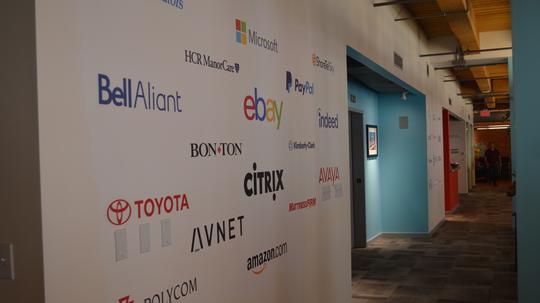
This contributed post comes from Natalie Robb, creator of the DC Marketing Tech Talks community, market analyst at WaveLength Analytics and organizer of the Marketing Tech Magnified conference coming up March 15 in Ballston. It has been edited for length and clarity.
Everyone – entrepreneurs and marketers alike – thought they were the silver bullets. The solution to the never-ending quest for sales leads. Digital marketing and marketing automation are here! They are the answer!
We got so excited about having data. It’s a thrill to be able to report on impressions, opens, clicks, CPC, and many other buzzword vanity metrics. But we have been blind to the most important metrics – revenue. All those email contacts, open rates and web impressions aren’t delivering the way it was promised or hoped.
As Nick Panayi, VP of Global Brand and Digital Marketing at Tysons-based DXC Technology, points out in his recent blog post GDPR? Yes please, we’ve wasted too much time and money on email marketing to massive lists of people who just aren’t interested in our products.
Worse still, Panayi writes, “The vast majority of all those blast-email recipients clearly blew us off, time after time, email after email. After years of consistent rejection, we became numb, and somehow we found a way to think that 80-90 percent rejection rates are something to celebrate. We started to plan for, and aim at, mediocracy.”
A recent article on Mediapost echoes Panayi’s point: Email, once the No. 1 tactic and tied to every other form of digital marketing, isn’t working.
Next – and this one is big – it is from marketers themselves.
When we asked attendees of the Marketing Tech Magnified conference to share their names and email addresses with sponsors, just 4.5 percent of registrations agreed. Even digital marketers, marketing operations, and demand gen marketers, the very people who send marketing emails, aren’t thrilled to to get more email.
So what gives?
D.C. marketers and entrepreneurs are realizing that the combination of digital marketing and marketing automation is no holy grail. Rather, it’s a set of tools and channels that are part of an overall marketing plan.
Fortunately, marketers are retrenching back to some key marketing principles, like getting smart about customers, targeting, true personalization and compelling content. With help from some of the DMV’s emerging marketing tech leaders, we’re fixing this.
D.C.-Area Marketing Tech to the Rescue
Local vendors are helping marketers and entrepreneurs leave the “spray and pray” era. Bringing smarter targeting – like by account and geographic location – together with improved “next best action” campaigns, are delivering new success to marketers.
Location-based Targeting
Location-based targeting technology uses mobile device location data to advertise. It’s useful for advertising near or in particular stores, at events and around office buildings.
For example, a restaurant can run a flash lunch promotion to passersby or a company can build its brand awareness near the offices of a large B2B account target. Location-based marketing makes this possible. Two local companies, Dulles-based X-Mode and Gravy Analytics, both provide great location-based platforms to improve targeting and mobile advertising.
Account-Based Marketing
Account-based marketing helps B2B companies generate demand and engagement from chosen accounts and take advantage of a greater mix of communications channels beyond just email.
Using an ABM platform, marketers personalize messaging and content by target account and the buying role in those accounts. In addition, using ABM marketers can advertise and retarget to only selected accounts, reaching and growing awareness to both known and unknown decision makers. In B2B enterprise sales that usually involves cross-functional buying committees, and the ability to target within a selected corporation is particularly powerful. Reston-based Triblio is a rapidly growing ABM platform helping marketers better target and speed the B2B sale.
Customer Intelligence Platforms
Then there are customer intelligence platforms to help marketers make better and faster decisions about marketing strategies and tactics. Such platforms aggregate customer and market data. They then perform analytics, uncover market and customer insights, and even go so far as to suggest the next best tactic or response marketing should take.
Customer intelligence platforms, such as Tysons-based Coglide, use AI to offer a holistic view of customers – of who they are, what they do and how they think. Better customer understanding, of course, means marketers can then create more compelling and personalized content. Armed with better content, marketers in turn, can improve customer experience, loyalty and speed of sale.
Reston’s Resonate is another comprehensive consumer intelligence platform, which includes nearly 185 million Americans and aggregates thousands of consumer data points, building multi-channel engagement to grow both new and existing customers.
Herndon-based Syntasa is the other emerging player in this space. It takes a more customized big data approach. Using the Syntasa platform, marketers work with data scientists and analysts to bring all marketing cloud and enterprise data into a consolidated environment, correlate all data from given individuals across all devices and data sources, and then create custom marketing models.
Truthfully, there are no, and never have been or will be, silver bullets in marketing. It calls for brains, muscle and grit. Successful marketers and entrepreneurs alike in 2019 will require strategy, technology, data and the entire marketing mix.




